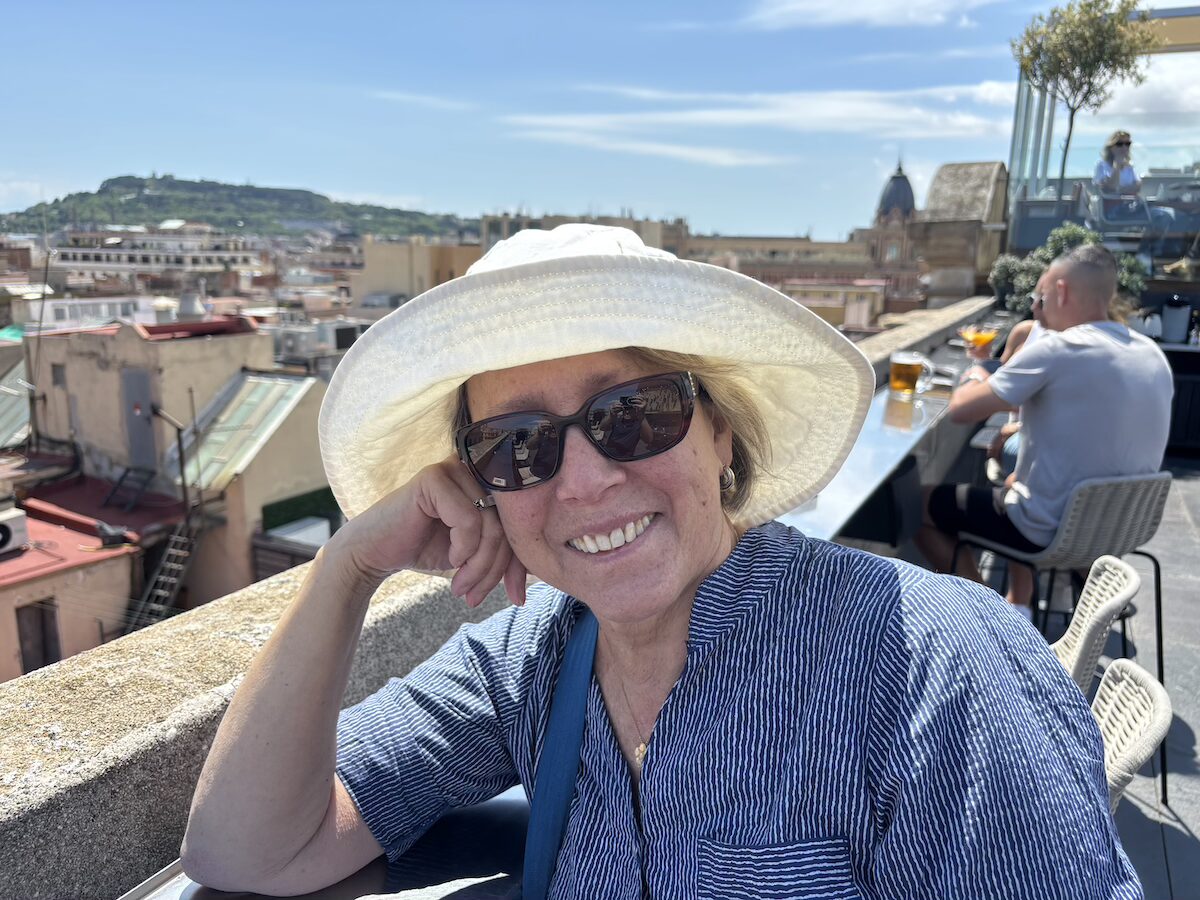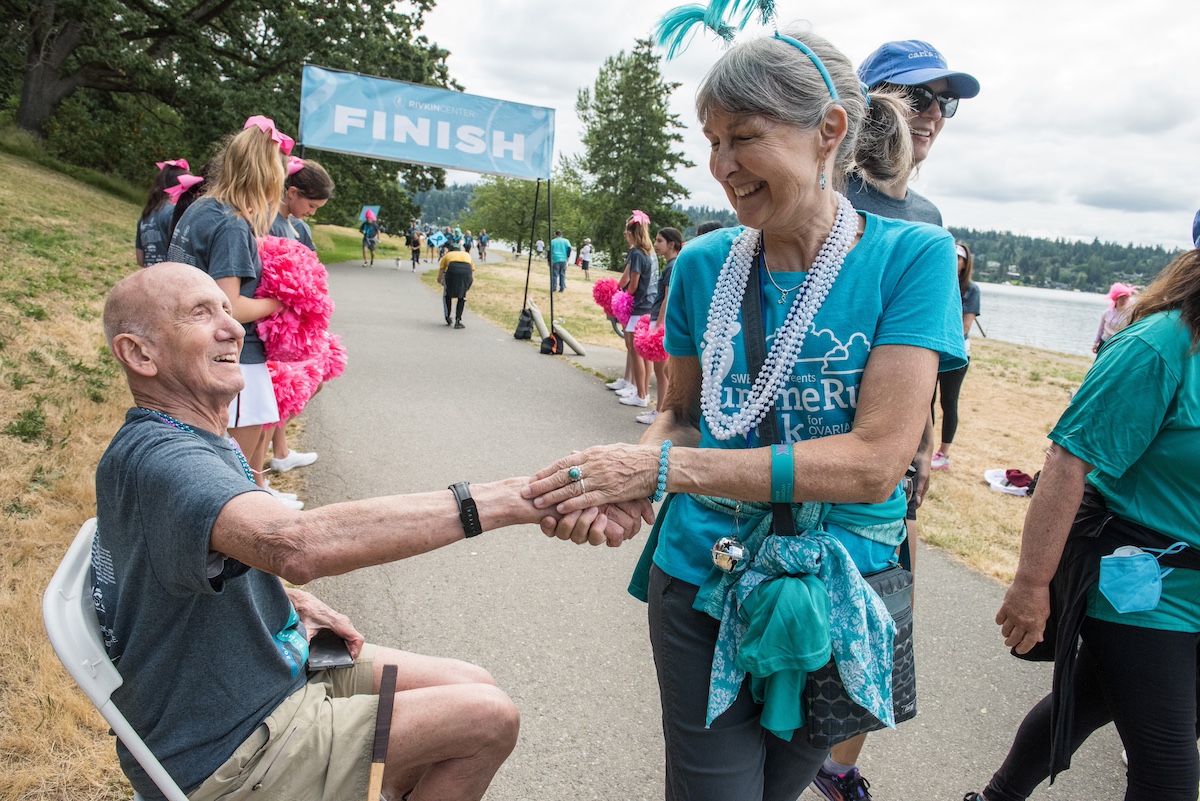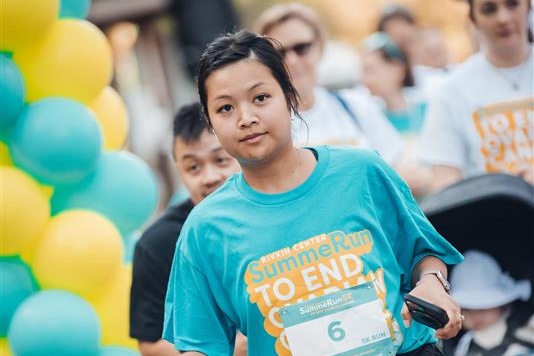Dr. Ron Buckanovich, an OCRA grantee, uses a metaphor to describe his work. “If I’m trying to get into Chicago and the highways that get me into the city are blocked off, no matter how important my job is, I’m not going to get there.”

He’s talking about immunotherapy and the fact that the cells our bodies generate to fight cancer do not work when it comes to battling ovarian tumors. He and his team have noticed that ovarian cancer grows in thick, dense scar tissue. And this scar tissue is blocking a component of the immune system, blocking its ability to do its job.
“Our question is, ‘can we dissolve that scar tissue with new medications? And if we dissolve that scar, can we make immune therapies work better again?’ The conclusion is, at least in mice, we can.”
The best of both worlds
Ron, an MD and Ph.D., is a Professor of Medicine and serves as the Director of Ovarian Cancer Center of Excellence and Co-Director of the Women’s Cancer Research Center at the Magee Women’s Research Institute and UPMC Hillman Cancer Center of the University of Pittsburgh. He spends 80 percent of his time in the lab, and 20 percent with patients. It’s the work with patients that fuels him. “I love people, I love the hugs, the exposure to the world, the stories,” Ron said. “But if I had to do it all day, every day, I might burn out because it’s so intense.”
And yet, he acknowledges that if he only focused on the science, he might lose sight of the motivation for making advances in ovarian cancer research. “So the mixture of both,” Ron said, “where I can see patients and go back to the lab in the same day and tell my post-docs a story about a patient, or something we saw, an observation that can drive the next clinical trial, it’s a great pairing.”
Ron always knew he’d be a scientist, even when he was a little boy. “I was in 6th grade and Ronald Reagan was running for president,” he recalled. “My teacher asked if I ever wanted to be president. This was during the cold war and I said ‘with a name like Buckanovich, there’s no way I’d ever get elected. But I can win a Nobel Prize.’”
During his junior year of college, Ron did a research project at SUNY Upstate Medical University that was very similar to a project he had been working on in school at Cornell. Only this project focused on a human factor that influenced cancer, rather than bacteria. “It was the exact same project, but it was so much more interesting because it impacted people,” Ron said. “So I talked to an advisor and he said ‘have you ever heard of this MD/Ph.D. thing?’”
Ron scrambled at the last minute to do what he needed to do to get into medical school, all the while thinking that he would still only focus on research; he’d just be a better scientist because of his knowledge of medicine. And then he took a gross anatomy class and saw the human body for the first time. “It was beautiful, such an amazing thing,” Ron said. “Then we met patients. After that, I swore I would never not be a doctor.”
A big picture look at research
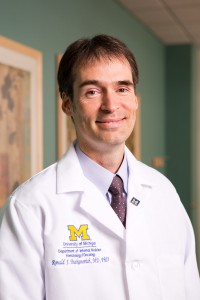
Ron speaks fondly of OCRA and credits the organization for helping him stay focused on ovarian cancer when he was seeking his first job. “That Tilberis Award carried me, otherwise, I would be one of the many people studying breast cancer. Not to malign them, but we need more people doing ovarian cancer research.”
He tells the members of his lab that they need to take chances and swing for the fences, and if only 10 percent of what they do works, that’s pretty good. “We don’t hit homeruns if we don’t try. And so it’s okay to fail. We have to learn that we learn through failure. That’s how I got here.”
But Ron is optimistic, and with good reason. “Some people will focus their whole career on one molecule and one pathway, and they will learn everything there is to know about that, which is good for them,” Ron said. “That is not who I am. I’m a big picture, looking at the forest kind of person. In the forest, there are lots of different trees you can ask questions about.”
He acknowledged that most scientists will get one breakthrough a year. So he has multiple researchers in his lab, working on multiple projects, which means he gets roughly one breakthrough a month. “There’s always something to be excited about,” he said.
Success breeds success, and Ron looks forward to new discoveries and opportunities. “We’re developing a new therapy that we stumbled onto and right now, we’re in a position where everything is clicking. It’s so fun, so exciting.” But still, it all comes back to the patients. They are what keeps him going despite setbacks, both the miraculous outcomes and the dismal failures. So he’s desperate to get the drugs he’s developing into clinical trials.
“I don’t care if I make a dime,” Ron said. “I want to see them tested in patients.”
Enjoying the now
Outside of the lab and the clinic, Ron’s most favorite thing in the world is being a dad. “Don’t tell anyone,” he said, “but even when I was a junior faculty, with all the pressures, I used to take a day off each week to spend with my kids. I had a daddy day.” The idea, he explained, was that they got to be in charge, making whatever decisions a three- or five-year-old could make.
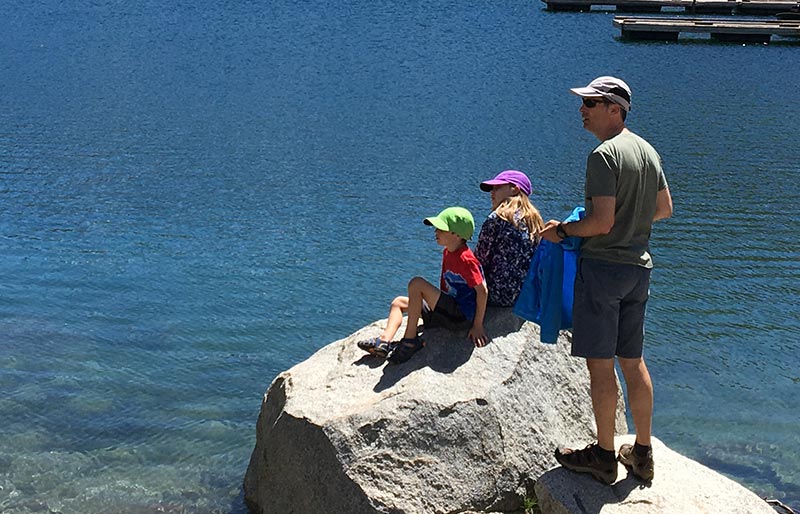
Setting aside time to enjoy his children – while they’re still at home and want to be with him – is just a manifestation of how he counsels his patients. “What I tell them, and my kids, is to live in the moment and enjoy the day,” Ron said.
“Some of my patients can get so obsessed with their diagnosis and the implications. And granted, it’s quite daunting. But if it makes you so depressed that you don’t live, then you kind of defeat the purpose. I can make you live five more years, but if you’re miserable every one of those days, have I done you a favor?”
Don’t wish away time. Enjoy the journey. That’s part of science, according to Ron. And important advice for life.
